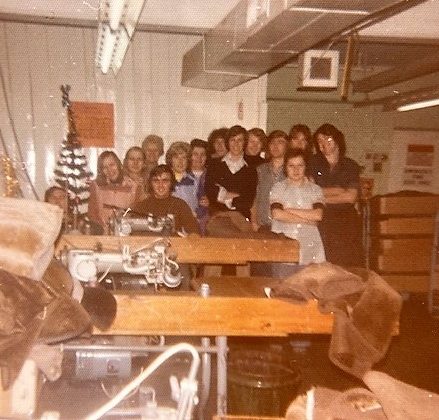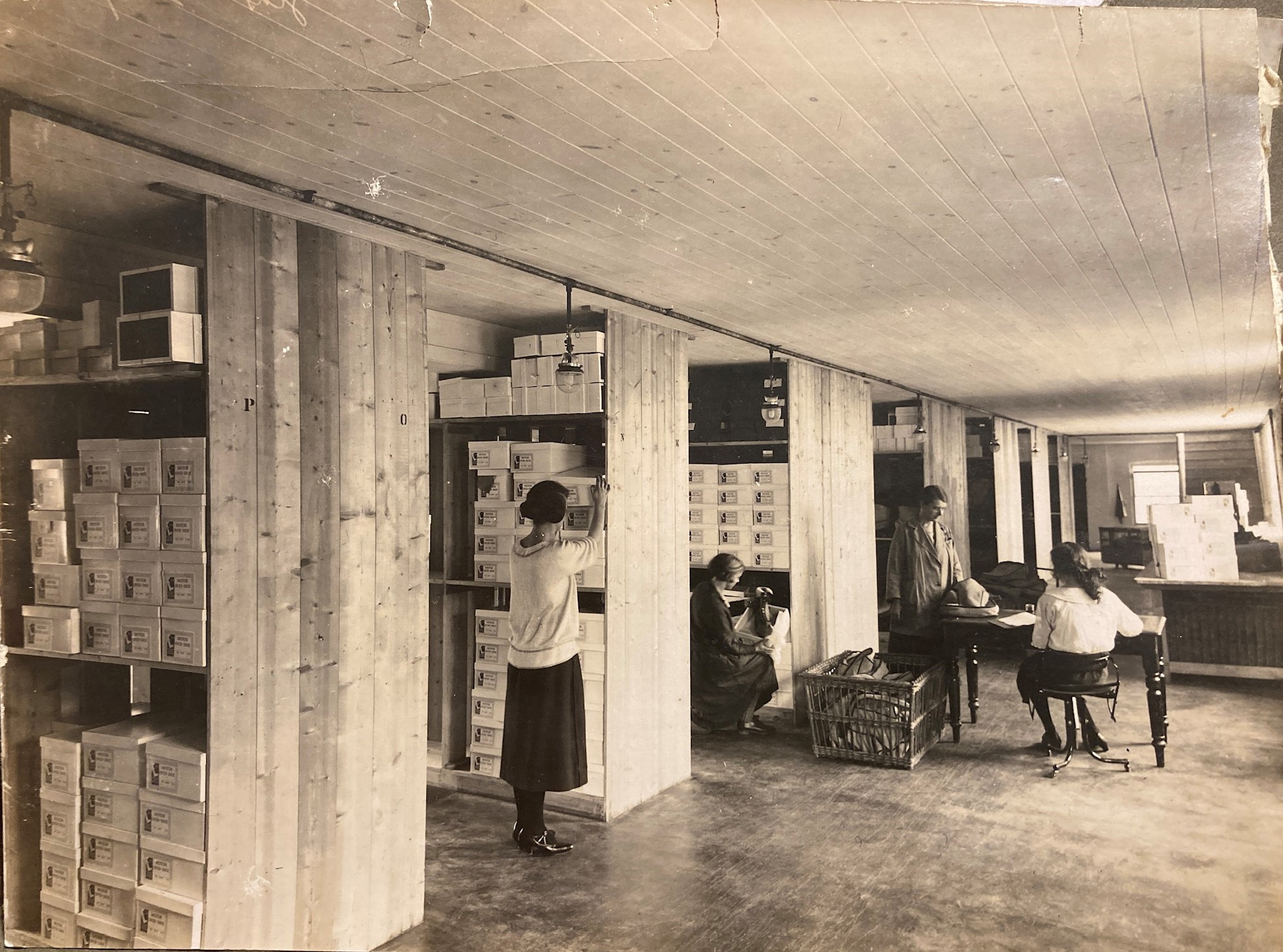When I left school, I didn’t know what to do, and my dad thought it was a good firm for me to come to, a Quaker firm that looked after its employees well.
[Roger, Morlands]
It was nice, I was sort of impressed when I first started, that there was a lady to do the filing, you know that was pretty surprising for me.
[Jackie, Morlands and Baily’s]

Photo: Fran Truscott
And I was always, always either Bill Lilly’s granddaughter or Fred Woodberry’s daughter, I never had my own name. I used to get very frustrated by it because I used to think I am a person, I’ve got my own name that I was christened with.
[Julia, Morlands]
People in Morlands mostly appreciated it – that there was a fairness in what they were. Yes of course they would have liked not to have been on piecework because piecework meant go-go-go-go. But on the whole, I think most of the employees were very contented.
[Rosa, Morlands]
It was a bit primitive in places, but it was pleasant enough, my colleagues were pleasant enough.
[John, Morlands and Baily’s]
But that’s Glastonbury for you, that’s how it was. In some ways it was lovely because you felt safe, but in other ways you felt smothered somehow.
[Julia, Morlands]
And the older gentlemen were well respected, you know. There were people who had quite serious wartime injuries – been machine gunned and prisoners of war. And they gave them jobs.
[Tim, Morlands]
I had occasion to go into the stock-room once and all the old hangers and everything was still there hanging up on rails. But a lot of older people, it was a fairly easy job. And they were very fair with people and let older people take that job and looked after them with it until they finally retired. So they were very caring people.
[Tim, Morlands]

Photo: Sally Hill

